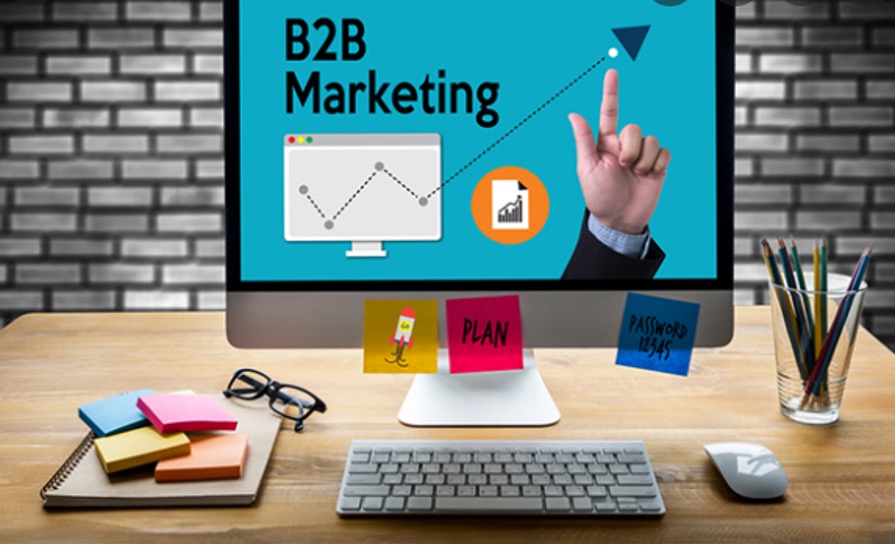As the pandemic spread around the globe, it has affected the lives of numerous people in many ways. First of all, no one had an idea that they would be forced to wear masks in public places, except in hospitals. Lockdowns had to take place, resulting in the closure of offices, educational institutions, recreational centers, and businesses.
Social distancing protocols have resulted in an increased reliance on technology and the Internet. Without these facilities, communication would be impossible at this time. As it becomes difficult for businesses to run successfully due to these circumstances, they question themselves on how they can be able to engage with their customers now and what must be altered and adjusted so that they can continue to run safely without affecting their stocks too much?
Here are 8 ways B2B marketing can adapt to the post-COVID world today:
1. Pivot Your Services to the Circumstances
Due to the enforcement of lockdowns and people being stuck at home, many physical stores have adapted digital marketing strategies to continue running their operations successfully and cater to their customers’ needs.
So try to think out of the box and shift your marketing techniques to better serve customers and keep your businesses afloat. If you’re actively striving to stay relevant, customers will remember you even after the lockdown restrictions have lifted.
2. Stay In Touch With Your Most Loyal Customers
In order for your business to stay relevant, it’s crucial that you stay in contact with your most loyal customers. Make sure that they are the first to know that you’re shifting to digital platforms and when there are special offers or discounted deals available on your products.
Use social media platforms to connect with your audience, even if you can’t directly serve them. There are other ways you can add value to their online experience, such as sharing valuable information, offering lead magnets consisting of educational resources, etc. Upgrade your marketing strategies and utilize your time wisely so that your business can stay relevant even during the pandemic. You may place them on the back burner as their support will come in handy when business is back up.
3. Consider Updating Your Marketing Budget
Since most people are practicing social distancing, they resort to browsing on social media and pages online to hunt for products and other necessities they want to purchase. Most brands are investing in search engine optimization to increase their online rankings and boost the visibility of their pages.
So instead of investing in billboard ads to promote your brand and product, you can switch to digital marketing as it allows you to refrain from spending big bucks. Adapting your budget to the situation can help you invest your funds in more productive promotional techniques and generate new leads.
4. Show That You’re Socially Active Online
If you want your business to regain more recognition, then you must also build a presence on social media platforms. It’s important that you try to create a level of trust and understanding with your customers, and for that, you need to properly engage with them.
In this challenging time, businesses try to meet the needs and demands of their existing customers. Share posts that establish your brand as a credible source of information, so prospects find you click-worthy and share your content with others.
5. Planning Ahead In-Case Of Complications For Your Business
Life has its own way of handling things. Obstacles can either make or break a business. Therefore, it’s essential that business executives and managers have a risk-management strategy in place, not just for the COVID-19 period but for the following years. These could outline how certain aspects of their operations can be shifted so that business can go smoothly, and they don’t suffer a major loss.
Moreover, it is important to list out the pros and cons of high-priority decisions and how they affect your business in the long-term. Exploring multiple circumstances that can occur in the future can help companies to prepare for the worst.
6. Increase the use of video-conferencing platforms
Communicating with your colleagues through Zoom, Skype, or WhatsApp has become a norm for a large number of corporations. It’s understandable that we’re not going back to our scheduled programming any time soon; thereby, businesses need to shift their work methods to keep operations running. Moreover, video conferencing has enabled teams to work more as they’re not commuting to work anymore, so they have more time to focus on tasks.
For example, employees of a software company in Pakistan hold regular team huddles on Zoom to discuss projects and assignments, as well as catch up on each member’s progress. As many employees are still working remotely, video conferencing is a valuable tool to help connect management with teams. B2B companies are adopting this approach to improve employee participation, and so they can stay in touch with workers even when they’re not physically present.
7. Stay Tech Savvy
During the pandemic, everyone was heavily dependent on technology for everyday tasks such as placing a lunch order, shopping for groceries, having virtual meetings, and even having a session with their therapist. Technology is massive, and it’s important for us to be knowledgeable about it.
Many businesses took a long while to get used to the lockdown and adjust their working strategies according to it. So when the world goes back to the way it was – infection-free -it’s important that they remain technically-inclined and continue to educate themselves on the benefits of modern digital solutions.
8. Find Customers Ahead Of Time
Because of the covid-19 pandemic, many companies have ended up with major losses of regular and loyal customers, as they’re practicing social distancing religiously. You must make sure to find new and creative ways to attract potential buyers to stay ahead of the competition and keep the revenue flowing.
It’s also vital that your company maintains contact with the customers that they have gained during the pandemic and continue to keep them informed about new sales, special offers, and discounts. These customers will be the ones who will make sure to remember your company even after the virus is gone.
Conclusion
The coronavirus has shaken the world to its core, but that doesn’t mean we won’t recover from this. By adopting flexible and robust strategies, businesses can slowly pick up from where they left off.
It’s time for us to accept the new normal and move towards embracing holistic approaches that can help us survive in the market post-COVID19.




